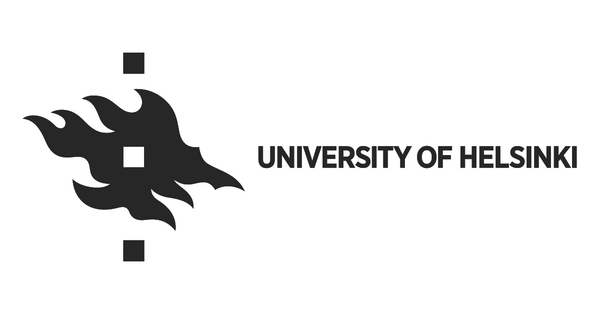University of Helsinki: Right-wing populist rhetoric dominates the debate on multiculturalism
Multiculturalism was once seen as a positive phenomenon that brings people together, but now the discussion on multiculturalism divides people and contributes to disagreement. Right-wing populist parties have come to dominate public discourse on multiculturalism, which has become more politically charged and polarised.
The discussion sets out to conjure up threats about what multiculturalism leads to, and to blame political opponents for mistakes made in the integration of immigrants. Established parties are often left stumped in the face of the populists’ accusations and have been unable to formulate convincing answers and alternatives to the doomsday scenarios.
So says Katarina Pettersson, university lecturer of social psychology who has, together with Emma Nortio, edited a book entitled The Far-Right Discourse of Multiculturalism in Intergroup Interactions.
“It has become very difficult to have a civil and constructive discussion on multiculturalism. People are incredibly fixed in their views and do not try to come up with shared solutions,” says Pettersson.
Today’s polarised discourse on multiculturalism in the Nordic countries developed in tandem with the emergence of right-wing populists in Europe around 2010, and gathered force in connection with the so-called refugee crisis of 2015. Features characteristic of right-wing populist rhetoric include the juxtaposition of the ‘elite’ and ‘ordinary people’ as well as strong opposition to humanitarian immigration and a multicultural society.
The political debate is no longer about creating a functioning multicultural society. Instead, the focus is on blaming one’s political opponents for either racism or the problems that immigration has caused. Arguments used by right-wing populists include claims that immigration causes crime and that the Nordic welfare societies cannot cope with the costs of immigration. Moreover, the populists say that it is impossible to successfully reconcile the culture of the immigrants and the values of a Western secular society.
Political debate reflected in day-to-day discussions
Katarina Pettersson has investigated the right-wing populist political discourse, whereas Emma Nortio has focused on discussions between people and groups in everyday contexts. It has become apparent that the political and societal debates about multiculturalism share many features.
One reason for the success of the right-wing populist parties in spreading their views on immigration and multiculturalism is that they have been adept at getting their message across, above all, on social media. Right-wing populist parties have not only changed the political debate – the populist rhetoric has also affected societal discourse in general.
“How people talk about and understand things in their daily lives is connected to how issues are discussed in the media and in politics. Polarisation affects all levels of society. With digitalisation and social media, hate speech and discriminatory statements about, for example, minorities and immigrants spread quickly and almost unimpeded,” notes Pettersson.
The right-wing populist rhetoric has reduced barriers to, and normalised, the use of old-fashioned racist expressions which were unthinkable just 20 years ago. This has happened within political discourse and in day-to-day discussions.
What is a functional multicultural society like?
Free movement, the EU, digitalisation and globalisation have all contributed to the current era of employment-based migration. The climate crisis and global conflicts will only increase the number of refugees and asylum seekers. Multiculturalism is here to stay. Many have fled Russia’s war on Ukraine, coming to the Nordic and other European countries as refugees.
Pettersson hopes that rather than blaming their opponents for mistakes related to immigration and integration, politicians will focus on making the best out of the inevitable. We are at a turning point, with both politicians and people more united than ever in their opposition to Russia’s aggression against Ukraine and in solidarity with those fleeing the war.
“A well-functioning multiculturalism could mean a society in which different groups are given the opportunity to participate and contribute on equal terms. Different cultures can live side by side and be included in a societal community,” says Pettersson.
But this requires that the majority population has an inclusive attitude towards minority groups. Also required are a well-functioning integration system as well as long-term, solution-oriented and constructive politics rather than politics based on, and encouraging, antagonism and threats.
“No one benefits from the marginalisation of certain groups. In the best case, we can utilise the knowledge, wealth and perspectives provided by intercultural interaction for the benefit of everyone.”
We need dialogue and the willingness to understand
Increasing understanding between groups of people and getting people to yield their fixed views is a long process. The promotion of a well-functioning multicultural society requires changes in the political debate, which are then reflected in discussions in the media and between people.
“The maintenance of dialogue is key, as is striving to understand and respect those who don’t share our views. We mustn’t shut each other out and retreat into our own bubbles,” says Pettersson.
Nordic societies must also plan their services and institutions to be inclusive at all levels and throughout people’s lives, from maternity clinics, early childhood education and schools to the job market, social and healthcare services as well as services for the elderly. Cooperation must take place between different societal levels and actors, such as the media, politicians, educational establishments, organisations and those working to prevent exclusion and marginalisation.
“Established parties must formulate convincing answers to the threats purported to be posed by multiculturalism and must work to maintain dialogue with their political opponents within the framework of parliamentary democracy,” states Pettersson.

